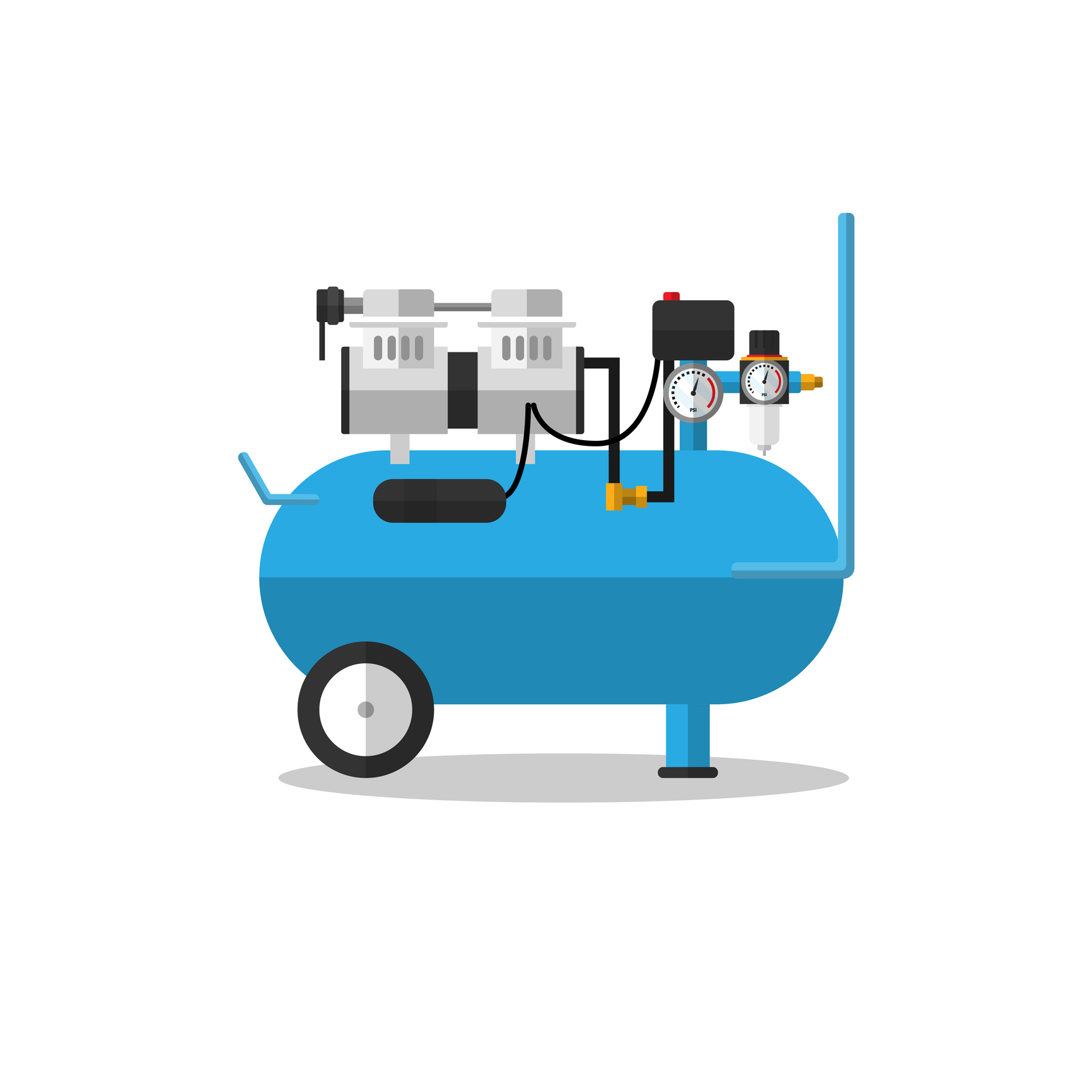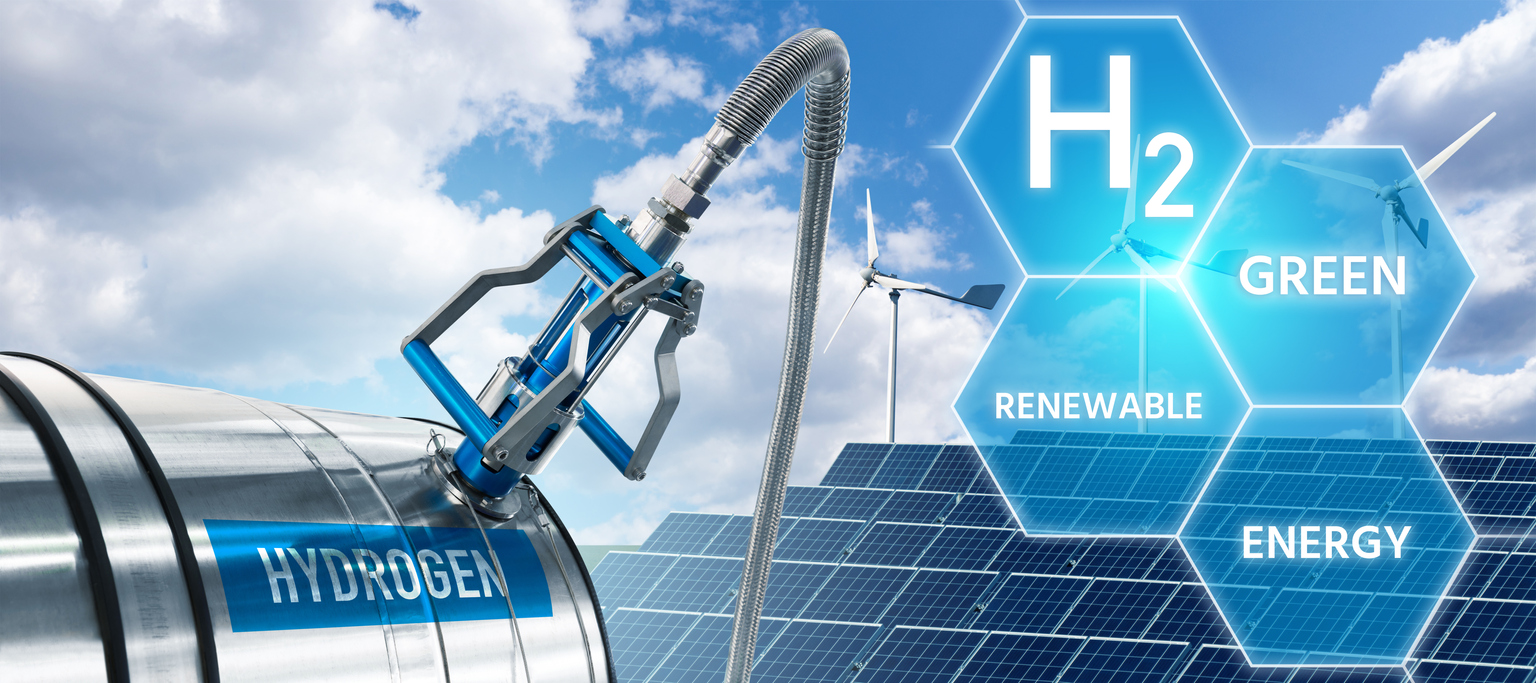Eco-friendly Compressors: Achieving Sustainability Across Industries
In today’s fast-moving world, many sectors are experiencing a shift towards sustainable practices to combat climate change and promote long-term development. One area where this change is seen is the adoption of eco-friendly compressors, which are becoming increasingly prevalent. While traditional compressors are effective, they come with notable environmental drawbacks. However, the emergence of eco-friendly compressors presents a promising opportunity to minimize environmental impact while maintaining efficiency. These innovative machines are revolutionizing industries by tackling the environmental concerns associated with traditional compressors and offering a sustainable solution for the future.
Understanding Eco-friendly Compressors
Eco-friendly or “green” compressors are made with the least amount of environmental impact in mind. In contrast to traditional fossil fuel-powered compressors, environmentally friendly models use cutting-edge materials, renewable energy sources, and novel technology to deliver better performance with less environmental impact. These devices support environmental sustainability and provide businesses with affordable options by lowering energy usage and emissions.
Role in Shaping a Greener Future
Technological developments and the increasing market need for sustainable solutions have fuelled the transition towards environmentally friendly compressors. As the world moves toward a greener tomorrow, these considerations have greatly impacted compressor technology and guided the industry toward more ecologically friendly methods.
Compressors designed to be environmentally friendly utilize advanced technology and complex control systems. These improvements allow for better monitoring and optimization of compressor functions, encouraging efficient energy use and reduced emissions. In addition to the environmental advantages, these advancements also result in substantial cost savings for businesses in the long run.
Comparison with Traditional Compressors
Traditional compressors significantly negatively impact the environment because of their high energy consumption and strong reliance on fossil fuels. This dependence exacerbates global warming by depleting natural resources and releasing greenhouse gases like carbon dioxide and methane.
| Aspect | Traditional Compressor | Eco-friendly Compressor |
|---|---|---|
| Energy Consumption | High energy consumption due to reliance on fossil fuels | Lower energy consumption due to innovative technologies and renewable energy sources |
| Carbon Footprint | Emit greenhouse gases like carbon dioxide and methane, worsening the global warming crisis | Reduce carbon emissions, thus minimizing environmental impact and climate change |
| Air Quality | Release pollutants and particulate matter into the air, contributing to air pollution | They don’t emit any polluting smoke or other waste gases |
| Oil Contamination | Risk of oil contamination, leading to production delays and increased labor costs | Lesser risk of oil contamination, reducing production disruptions and labor costs |
| Noise level | Can be noisy, contributing to workplace discomfort | Lower noise levels, providing a quieter and more comfortable working environment |
| Durability | Durability may vary and require frequent maintenance, which slows production and enhances labor costs | More Durable, requires less maintenance costs, and improves the production’s overall efficiency |
Technological Advancements in Compressor Design
Manufacturers invest in research and development to create more efficient and environmentally friendly machines. This includes using advanced materials, improved cooling systems, and better control mechanisms to optimize performance and minimize energy consumption.
Furthermore, as compressor design has evolved, novel elements that improve sustainability have been created. Regenerative braking systems, for example, are now incorporated into some environmentally friendly compressors. These systems catch and store energy that would otherwise be wasted during compression. Reusing this stored energy can further decrease the compressor’s overall energy consumption.
Key Trends Driving Innovation
- Advanced Materials: Modern materials like composites and high-strength metals have improved the longevity and performance of compressor components. These materials prolong the life of vital components by better withstanding corrosion and maintaining their mechanical strength and thermal stability.
- Precision Engineering: Manufacturers use precision engineering methods such as computer-aided design (CAD) and finite element analysis (FEA) to enhance the aerodynamics and structural strength of compressor components, leading to increased efficiency, lower noise levels, and improved reliability in challenging operational environments.
- Integrated Monitoring Systems: By integrating smart monitoring systems, downtime can be lowered, and operational efficiency can be maximized through real-time performance monitoring and predictive maintenance.
Applications of Eco-friendly Compressors Across Industries
- Manufacturing and Production: Manufacturing plants utilize eco-friendly compressors to power pneumatic tools, machine operations, and assembly lines. These compressors’ efficient use of energy helps lower overall energy expenses and decrease carbon footprint.
- Automotive Industry: Eco-conscious compressors are essential in automotive production, especially when manufacturing vehicles and their parts with automated equipment. These compressors can help manufacturers reduce operational costs and productivity by improving energy efficiency.
- Food and Beverage Industry: Environmentally friendly compressors are utilized in the food processing and beverage sectors for various tasks, such as product handling, packaging, and bottling. They produce a pure, oil-free air supply, which is necessary to uphold hygienic standards.
- Healthcare Sector: Green compressors are used in hospitals and other healthcare facilities’ medical gas systems to deliver oxygen, power surgical instruments, and offer clean air for pharmaceutical production. To guarantee patient safety, these compressors adhere to strict air quality standards and legal criteria. Energy efficiency is essential in hospital settings to reduce operating costs and environmental effects.
Market Demand and Industry Response
With growing consumer awareness of sustainability and climate change, the market for eco-friendly compressors is expected to rise significantly in the following years. Businesses that prioritize sustainability are actively looking for eco-friendly solutions to satisfy customers and gain a competitive advantage in the marketplace.
Manufacturers spend money on R&D to improve overall performance, lower emissions, and increase energy efficiency. Moreover, the market demand for eco-friendly compressors has spurred collaborations between manufacturers and environmental organizations. These partnerships aim to forge and advocate for industry standards about eco-friendly compressors, ensuring products meet rigorous ecological benchmarks.
Key Players

To achieve a remarkable energy economy, Atlas Copco provides a selection of compressors that combine sophisticated motor design, variable speed drive technology, and intelligent control systems. Compliant with global standards, these compressors minimize energy usage and leaks and eliminate the need for condensate treatment.
With next-generation refrigerants with low global warming potential and high-efficiency operation, Ingersoll Rand’s compressor is designed to reduce its environmental impact. Lengthen the intervals between maintenance and save maintenance expenses using patented long-life consumables that guarantee optimal performance with fewer replacements.
Advancements
Few innovations and advancements are shaping the future:
- Aggreko launches stage 3 low-emission oil-free air compressors, boosting run time, reliability, and fuel efficiency with extended service intervals, equating to reduced fuel consumption, lower maintenance costs, and less downtime.
- Copeland has launched a new oil-free centrifugal compressor with frictionless aero-lift-bearing technology. It offers a reliable, maintenance-free alternative and provides high-lift performance, reliability, and efficiency enhancements, making it suitable for chiller applications. The Aero-lift bearing technology enables the compressor shaft to self-levitate and operate independently, eliminating the need for friction, intricate controls, electromagnetics, or proximity sensors. It enhances the compressor’s ability to run smoothly, shut down quickly, and restart to lower application delays during power outages.
- Hitachi Global Air Power has launched Sullair TS 190-260 Series two-stage rotary screw air compressors. It offers best-in-class efficiency and reliability in industrial applications. It is available in air- and water-cooled configurations, featuring standard fixed speed, variable speed, and Sullair’s proprietary electronic spiral valve technology.
Future Perspective
As environmental consciousness grows, new technologies and research directions in the field of environmentally friendly compressors are being developed to make them more environmentally sustainable. It is anticipated that compressor design will continue to advance and innovate. Future compression mechanisms and materials developments may result in even more energy-efficient designs. According to experts, real-time compressor operation optimization for optimum energy efficiency and waste minimization is being made possible by developments in control systems and intelligence algorithms. Additionally, incorporating renewable energy sources into compressor systems—like solar and wind power—is becoming increasingly important. In addition to lowering compressor carbon emissions, this move to renewable energy will improve the sustainability of industrial processes as a whole. Global initiatives and policies that promote energy efficiency are creating opportunities for the growth of eco-friendly compressors. These policies incentivize businesses to invest in energy-efficient technologies and contribute to global sustainability efforts.
Conclusion
Sustainability among industries is being achieved dramatically with the rise of eco-friendly compressors. These inventive machines provide a viable way to reduce environmental impact without sacrificing performance and efficiency. Eco-friendly compressors are creating a more environmentally friendly future by solving the issues with conventional compressors and incorporating cutting-edge technology, renewable energy sources, and strict emissions regulations. Industries are increasingly adopting these sustainable alternatives, realizing their potential to lower emissions, boost energy efficiency, and boost competitiveness. Market forces and regulatory directives fuel this trend. Eco-friendly compressors are critical in encouraging environmental stewardship and building a resilient industrial landscape for a better tomorrow.
Let's Take the Conversation Forward
Reach out to Stellarix experts for tailored solutions to streamline your operations and achieve
measurable business excellence.



